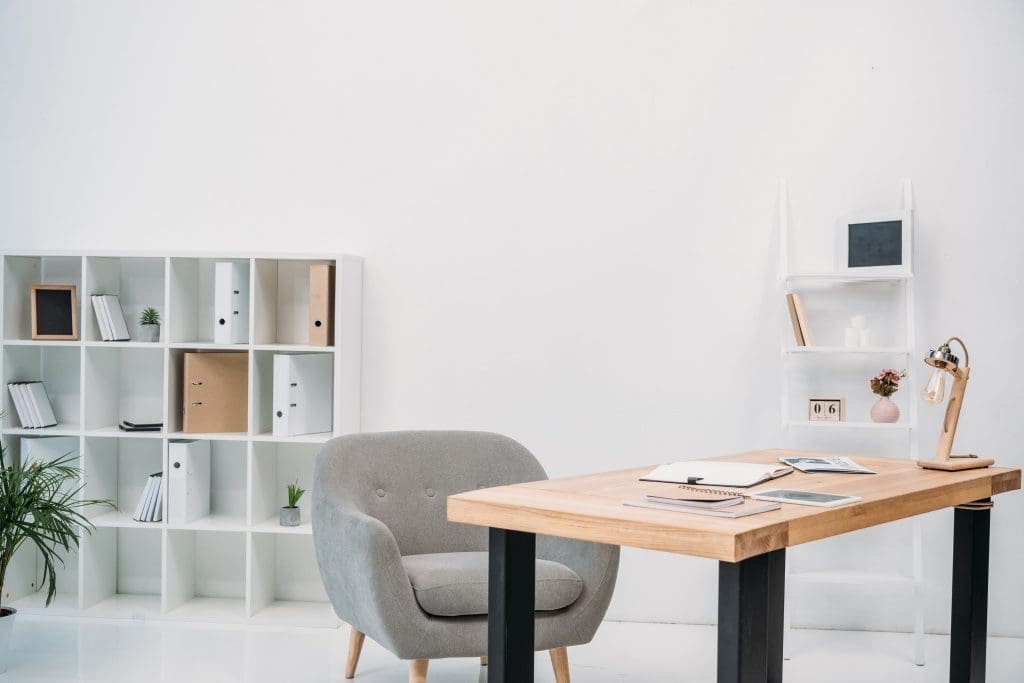With many businesses now forced to change their methods of operation, countless thousands of employees now find themselves working from home. For some, this may be the norm. For others, it could be a whole new ballgame.
Either way, working from home has its ups and downs, the same as any office would. Its challenges, however, are different from those of what we would typically experience in an office setting. Whether you are an employee or an employer, working from home requires some adjustment.
So how can you, a first-time home office worker, maintain productivity, and keep your sanity?
Teamwork Makes the Dream Work
Your job isn’t easy on a normal day, and now, with everything going on in the world, everyone is bound to be a teensy bit more tense than usual. Working remotely might put a strain on your working relationships, which is why communication is more important than ever.
Being away from the office doesn’t mean you stop communicating with your co-workers. In fact, in most situations, you’ll probably be communicating with them even more; you’ll just be using different tools and networks to collaborate.

Creative Brainstorming Meeting In the Design Office
Fortunately, there are plenty of resources out there to help you and your team communicate. On top of email, there are collaborative platforms like Slack and Microsoft Teams. For meetings and morning scrums, video conferencing apps like Zoom, Skype, Google Hangouts, Cisco WebEx, and BlueJeans give you a face-to-face connection.
Try to connect with your co-workers by video at least once a week to validate current projects and make sure everyone is on the same page.
Keep a Regular Schedule
When you’re working from home, time can start to blend together. That’s why it’s more important than ever to set yourself a schedule and stick to it. Without a sense of routine, you can lose track of time and get disoriented. Routine can also help you maintain a sense of day-to-day normalcy. Once you settle into this new normal, it will help boost your productivity.
Humans are creatures of habit by nature. Having a routine reduces stress because you allocate time to complete your tasks. This allows you to plan for meals, breaks, and other non-work-related activities.
Having structure in your day gives you a good idea of how much time you’re working and lets you assess how long tasks should take to complete. Even if your projects run over, you have a general guideline for how your day should go. Plus, it helps track your time: without a schedule, you could end up working more hours than you’re being paid for without even realizing it.
Office Space
During social isolation, there aren’t a lot of opportunities to get out of the house. Your home becomes both your recreational space and your office, which, for some people, can be a bit weird and unsettling. It can also make it much easier to get distracted. After all, you’re surrounded by all your gadgets and diversions with no supervision.


Having a dedicated office space can help to offset these little temptations. It doesn’t matter if you have an actual purpose-built office in your home or it’s just a desk in the corner of your bedroom. Having an area set aside expressly for your work can help you focus and get into the right headspace. Although the distractions are still there, it might be easier to ignore them when your brain and body are in the work zone.
Take Breaks
As you would when working in an office, it’s essential to make sure you take regular breaks. There are plenty of good reasons to break up your working day.
Taking breaks in small chunks rejuvenates your mind and body. Short breaks are proven to help you work harder and smarter. Long breaks, on the other hand, can distract you. They allow you to lose your train of thought and knock you out of the working headspace. Don’t let your breaks drag on. They should be just long enough to stimulate your body and give your brain a quick reset.
Breaks can motivate you, help you shake off ‘decision fatigue,’ and improve your memory. Plus, they boost your creativity and productivity.
Physical activity will leave you feeling refreshed and can help prevent a whole lot of issues that result from sitting too long. Even a quick, five-minute stroll and stretch every hour can do wonders for your body and mind. And don’t forget to eat lunch. Your brain needs nourishment to work, and you’re not doing yourself any favors by skipping meals.
Clocking Out
Don’t forget to “clock out” of your home office once working hours are over. When the day is done, let it be done. Close your laptop. Walk away from your desk.
Having set hours helps you better separate your work from the rest of your life. And let’s face it, you know what they say about all work and no play. Living your life is as important, if not more so, than your job. A healthy balance of the two will enhance your performance and your happiness.
If you’re new to working from home, be sure to give yourself some time to adjust. It takes a little while to establish and adapt to new routines, and in high-stress times like these, even more so. If you take these suggestions to heart, you’ll find your groove in no time.
To learn more about how you can optimize your workflows, reach out today.

